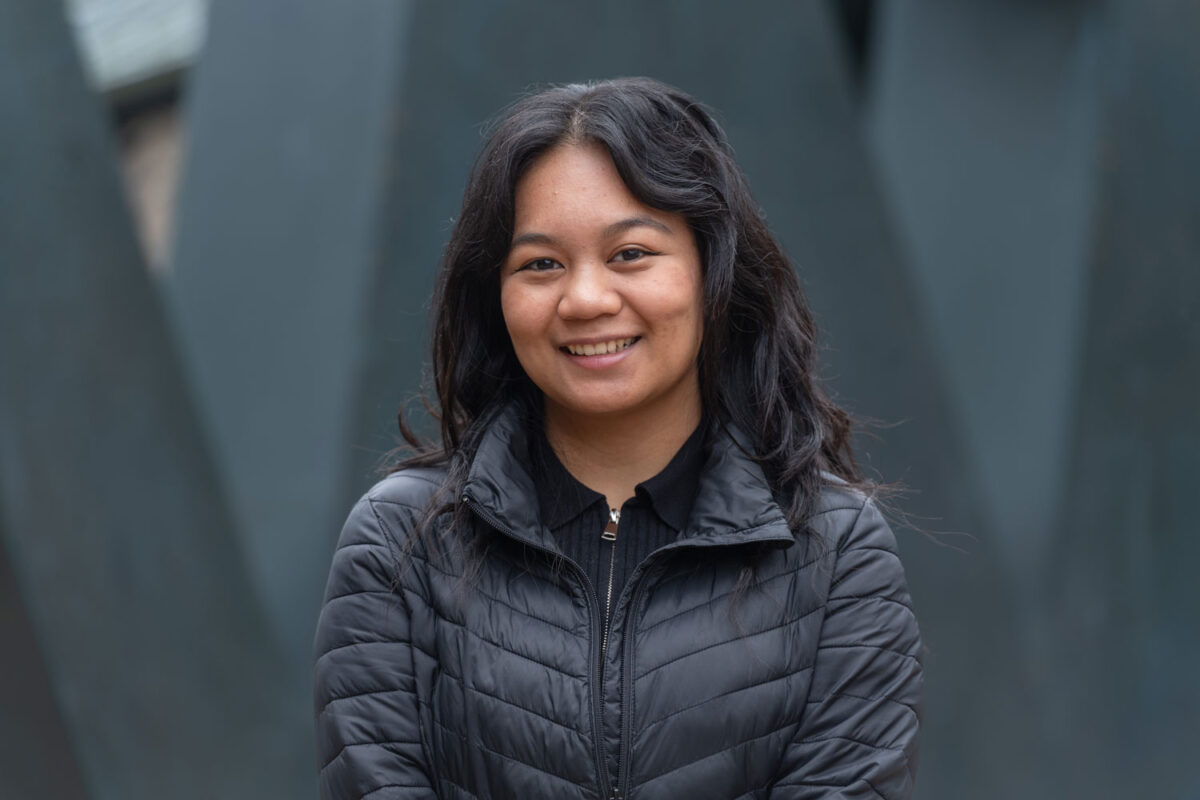By Douglas Esser
Some University of Washington Bothell students who work, have families or different learning styles need more flexibility in their schedules. The answer for many is e-learning courses. They combine class time with online instruction, typically in a 50-50 mix that improves access by meeting students where they are.

The number of courses blended with some part online has grown from zero in 2011 to 106 in 2016, says Mary Bold, who became the University’s chief e-learning strategist last year. Working in the information technologies department, she bridges technology and academics to build support for online tools. From her 20 years’ experience, she says online education levels the playing field for students and promotes deeper learning.
It levels the playing field by making higher education available to more students who might have trouble meeting a classroom schedule because of work, family responsibilities or disabilities.
When she was an online instructor, Bold had one student who regularly posted at 4 a.m. She thought he was just an early riser but later learned he was a hospital patient. And 4 a.m. was the time nurses let him use the computer at the nurses’ station.
“Everyone has an equal footing in the online space,” Bold says.
Beyond that, online classes require a commitment that results in deeper learning, she says.
“If you are in an online setting and you want to be a passive student you will not pass the course,” Bold says.
The ideas that e-learning values diverse students and requires responsibility are confirmed by Cassidy Weatherbee, a student working to graduate in 2018 with a double major in media and communication studies and interactive media design. She’s glad to find e-learning classes available at UW Bothell after her experience in high school. She hated it.
Until she discovered Insight School of Washington, a tuition-free online public school that she used to finish her last two years.
“Because I was so responsible for it, I started caring about it more and started to like school for the first time,” Weatherbee says. “I liked being able to get up when I wanted and do school when I knew the best times for me.”
At UW Bothell last year she took BIS 315 Understanding Statistics, a 50-50 hybrid.
“It’s not necessarily harder; it’s just a different kind of effort, because you’re in charge of it. If you do not commit to it you will not do well,” Weatherbee says. “You have to put in a lot of self-motivation, so it builds that.”
E-learning courses combine flexibility with the small classes and faculty mentorship for which UW Bothell is proud. For example, a 50 percent e-learning course would meet face to face in class once rather than twice a week. The other half would take place online with readings, videos, quizzes and tests, using your own computer and internet connection.
There’s a demand for e-learning classes from faculty, as well as students, says Sara Frizelle, an e-learning specialist in information technologies.

“We’re seeing significant growth in both hybrid and distance or online classes,” she says.
Photo: left to right: Mary Bold, Cassidy Weatherbee, Sara Frizzelle
The past academic year, the combined number of hybrid and online classes almost doubled.
“It’s huge and obviously we’re not going to continue to see that every year,” but there has been significant effort to support faculty who want to dive into teaching this way, says Frizelle.
Faculty have to be prepared to put in the effort the first year when all the materials and technology must be in place, says Bold. The second year, faculty members get up to speed with practice grading and communicating with students.
Another student, Wendy Prather, expected she would have to work a little harder when she took an Understanding Statistics course over the summer in a 50-50 class-online blend, but the convenience was welcome. Even with other classes, she only had to come to campus twice a week – a half-hour bus ride from her home in Seattle.
“I’m a mom. I work 40 hours. I’m a full time student. My husband was a full-time student, and I have two businesses,” said Prather, a professional seamstress who makes wedding gowns and reupholsters motorcycle seats.
“I also knew I would learn well just because of the way the online part works,” she said. “It’s kind of go at your own pace, but at the same time you need to keep up.”
Prather, who is working to graduate in 2017 in environmental science, says it was a great experience, but she advises other e-learning students not to get behind.
“Once you get behind, it no longer fits into your schedule,” says Prather, “because you’re trying to catch up and catching up is not part of the schedule.”
Check out the e-learning courses offered this quarter at UW Bothell.



